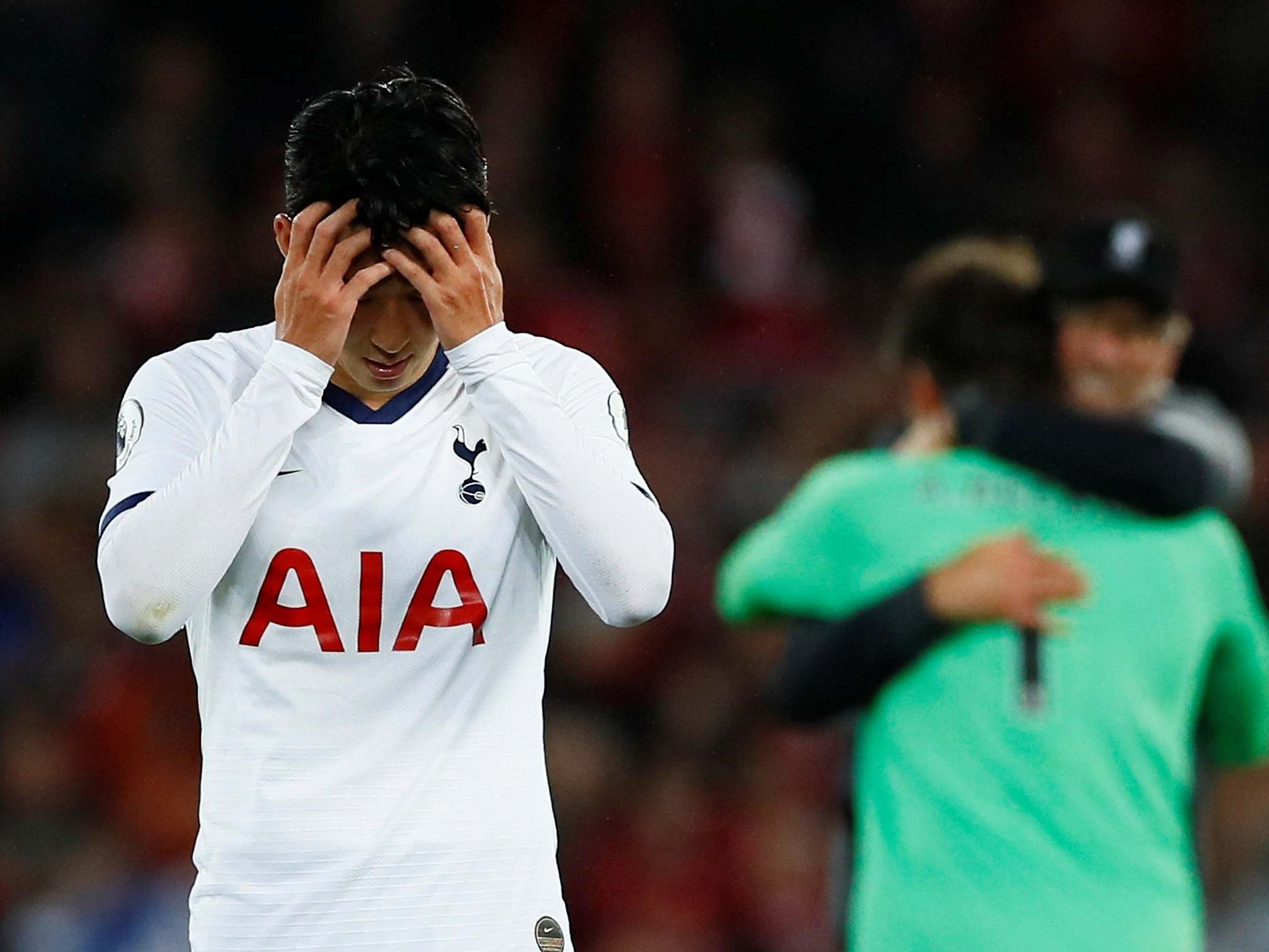How Liverpool became better at being Tottenham than Tottenham
Jurgen Klopp’s Reds have Spurs’ defining characteristics. They do what Tottenham used to, what they still try to, but they do it quicker and better and more often

It could have been Mauricio Pochettino speaking. The words defined his beliefs. Speed, intensity, momentum, pressing. They were all words the victorious manager used, but that manager was Jurgen Klopp.
Pochettino and Klopp were fellow travellers in a pressing revolution, men whose philosophies took them to a Champions League final. Yet as they reconvened, the sense was that Tottenham were beaten by a better version of themselves. Liverpool have Spurs’ defining characteristics. They do what Tottenham used to, what they still try to, but they do it quicker and better and more often. Spurs were buffeted, bombarded as Liverpool had 21 shots. The league leaders exhaust opponents into errors. Perhaps Serge Aurier had a scrambled brain when he hacked at Sadio Mane’s calves for the decisive penalty. It would not be the first time, given the Ivorian’s erratic streak, but the mitigating factor came in the form of fatigue.
Tottenham were overrun, overcome, overwhelmed. “We suffered in the first half,” Pochettino admitted. “When we score so early it is like we need to defend, defend, defend.” They were thrust on to the back foot by the combination of an astonishing start – Harry Kane becoming the first visitor to score in the opening minute of a Premier League match at Anfield since 1999 – and Liverpool’s physicality. The winner was even a product of pressing, Mane regaining the ball from Aurier before being fouled by him. Pochettino may have looked on in frustration, but it was probably laced with admiration. “We came out with the intention to press,” said Kane, but they were out-pressed.
This was both a near-miss and an indication the gap has become a gulf. Heung-min Son was inches from doubling Tottenham’s lead, perhaps a crossbar away from inflicting a first home league defeat since 2017 on Liverpool. “Maybe it finishes 2-0 or 3-0 to us,” Pochettino mused. But it didn’t.
His radar has malfunctioned too many times this season. He has arrowed in on the wrong team, the wrong system. The search for a winning formula has encompassed myriad permutations of personnel and shape. This represented something of a return to form from him. Pochettino’s tactics felt right. Tottenham were compact at the back. They congested the midfield. They counter-attacked intelligently.
Spurs competed valiantly. They showed the sort of resolve they mislaid in the capitulations to Bayern Munich and Brighton. But, in many respects, 2-1 flattered them and not merely because Paulo Gazzaniga made a series of superb saves. The worrying element was not the performance or the result, the effort or the gameplan. It was that Liverpool are now so much better than them. It is that, when all other things are equal, Liverpool’s superiority dictates that they should win.
That was not always the case. Three of Klopp’s four league finishes were below Spurs, even if he has a solitary loss in 11 games against Pochettino; next month marks the two-year anniversary of that 4-1 hammering. Then Virgil van Dijk arrived, then Alisson. Now Liverpool have beaten Tottenham four times in a row and if all three league triumphs have been narrow affairs, ending 2-1, there were 26 points between them last season. There are already 16 between them now. They are top of the top half and top of the bottom half respectively.
That chasm between them was epitomised by the full-backs. Trent Alexander-Arnold was magnificent and marauding, Andrew Robertson was relentless. In contrast, Aurier hacked down Mane to allow Mohamed Salah to score the winner. Danny Rose looked what he is, a player in decline. Select a combined 11 and the two simplest decisions come on either side of the defence. The Spurs pair are weak links but, three years ago, the full-backs used to give Tottenham their dynamism. Now they power Liverpool.
Manchester United tried to negate them with wing-backs. Tottenham could not risk leaving their full-backs as the only players on either flank. They could not halt running machines with two players on each side. They ended up looking like plucky underdogs, rather than the fearless team who made Manuel Pellegrini’s Manchester City and Louis van Gaal’s Manchester United seem ponderous with their own energy and vitality. Perhaps Anfield witnessed Pochettino’s vision in a display one manager loved. Except it wasn’t Tottenham, but Liverpool, who were executing it.
Join our commenting forum
Join thought-provoking conversations, follow other Independent readers and see their replies
Comments
Bookmark popover
Removed from bookmarks